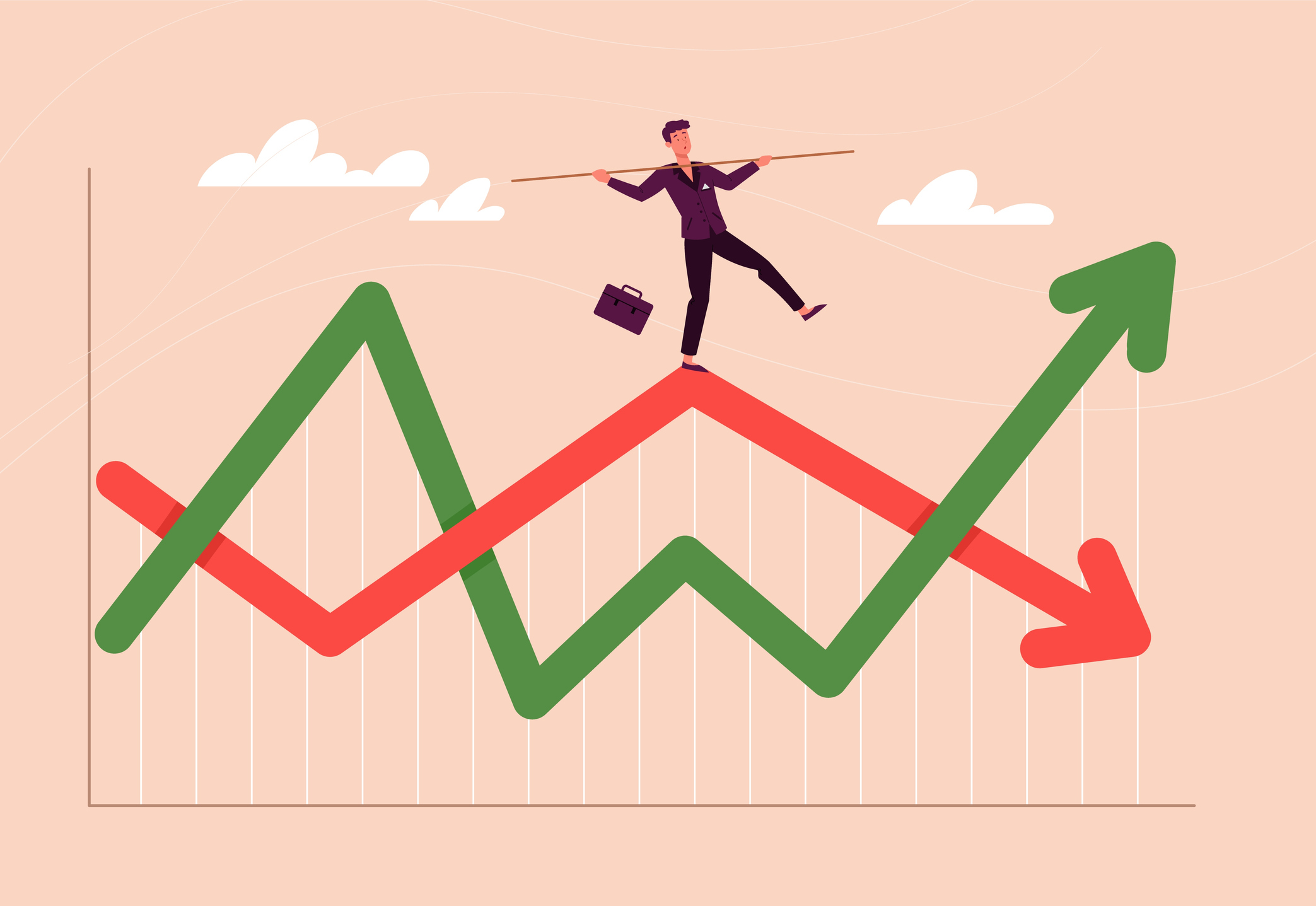
"Where do you think the economy is headed?" It's a question many of our clients are asking. What lies ahead? Will the economy stall or surge? Are we on the brink of a recession, or is a period of growth on the horizon? This uncertainty extends to interest rates—have they peaked, and what direction will they take?
At Midwest BankCentre, we don't possess a crystal ball, but what we do have is a legacy of strength and stability. With over a century of navigating various economic cycles, we've earned our stripes as a trusted advisor to nearly 10,000 local businesses. We don't claim to predict the future; our focus is on empowering business leaders to make informed decisions and carve a path to success.
Many believe rates have topped out, but let's explore both sides of the equation to be ready for opportunities, regardless of which way the economic winds blow.
Managing Debt in a Steady or Lowering Rate Environment
In an environment of steady or lowering interest rates, businesses have a unique chance to optimize their financial strategies.
For those with outstanding lines of credit, this is an opportune time to reassess repayment strategies. A proactive approach to managing debt can be a game-changer in a lower interest rate environment. Businesses can capitalize on reduced debt servicing costs, freeing up resources for strategic investments and expansion.
If you've already paid down any outstanding borrowings, it's time to explore how you can maximize any excess liquidity you might have on hand. Many businesses are sitting on cash reserves, hesitant to invest in expansion or new projects due to economic uncertainty. However, with careful planning and strategic investment, businesses can turn their excess liquidity into a competitive advantage.
Identifying Opportunities in a Stable or Declining Rate Environment
If rates stay steady, you might consider taking a bit of a wait and see approach. The question becomes how interest rates maintained at these higher levels are impacting other aspects of the economy, such as cost of goods and employment. The U.S. Bureau of Labor Statistics reported that the consumer price index (CPI) increased by 8.6% in May 2023, the largest 12-month increase since December 1981. While it showed signs of slowing down with a flat increase in October 2023, it continued to decelerate with a modest increase of 0.1% in November 2023. Excluding volatile food and energy prices, the core CPI increase in November 2023 hit a two-year low. This type of volatility in inflation makes it challenging to predict the Fed’s future actions and their impact on the economy.
If rates start to come down, it might be time to look at expanding again. Many of our clients have taken a slight pause on making sizeable investments over the past 6 months or so due to the higher interest rates and cost of projects. But, if rates start to come down, you might ask if this is now a better time to invest in new growth opportunities. According to a recent survey by the National Federation of Independent Business (NFIB), small business optimism dropped to a 2-year low in May 2023 due to concerns about inflation, labor shortages, and supply chain disruptions. However, a decline in interest rates could boost business sentiment and encourage increased investment.
The Role of a Trusted Advisor
A trusted advisor plays a crucial role in navigating these different scenarios, tailoring strategies to your unique situation. At Midwest BankCentre, our team of experienced professionals is dedicated to helping you make informed decisions that align with your long-term business goals. We understand that every business is different, and we take a personalized approach to providing financial guidance and solutions.
The bottom line is that business goes on regardless of interest rate fluctuations. There are always cycles in business, and at Midwest BankCentre, we stand ready to help position you for the long term. Where you bank matters.
Originally published in the St. Louis Business Journals Ask The Expert Column on 12/22/2023 by Danny Pogue, President – Commercial, Retail & Small Business Banking.